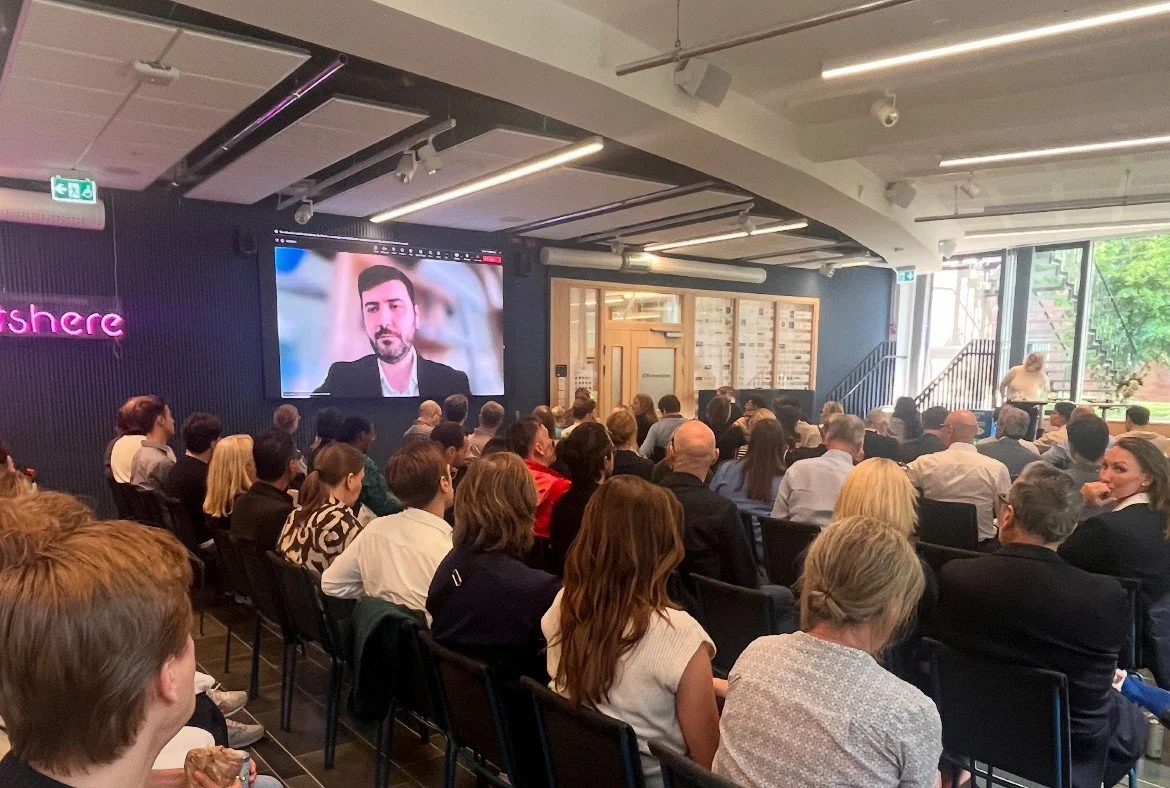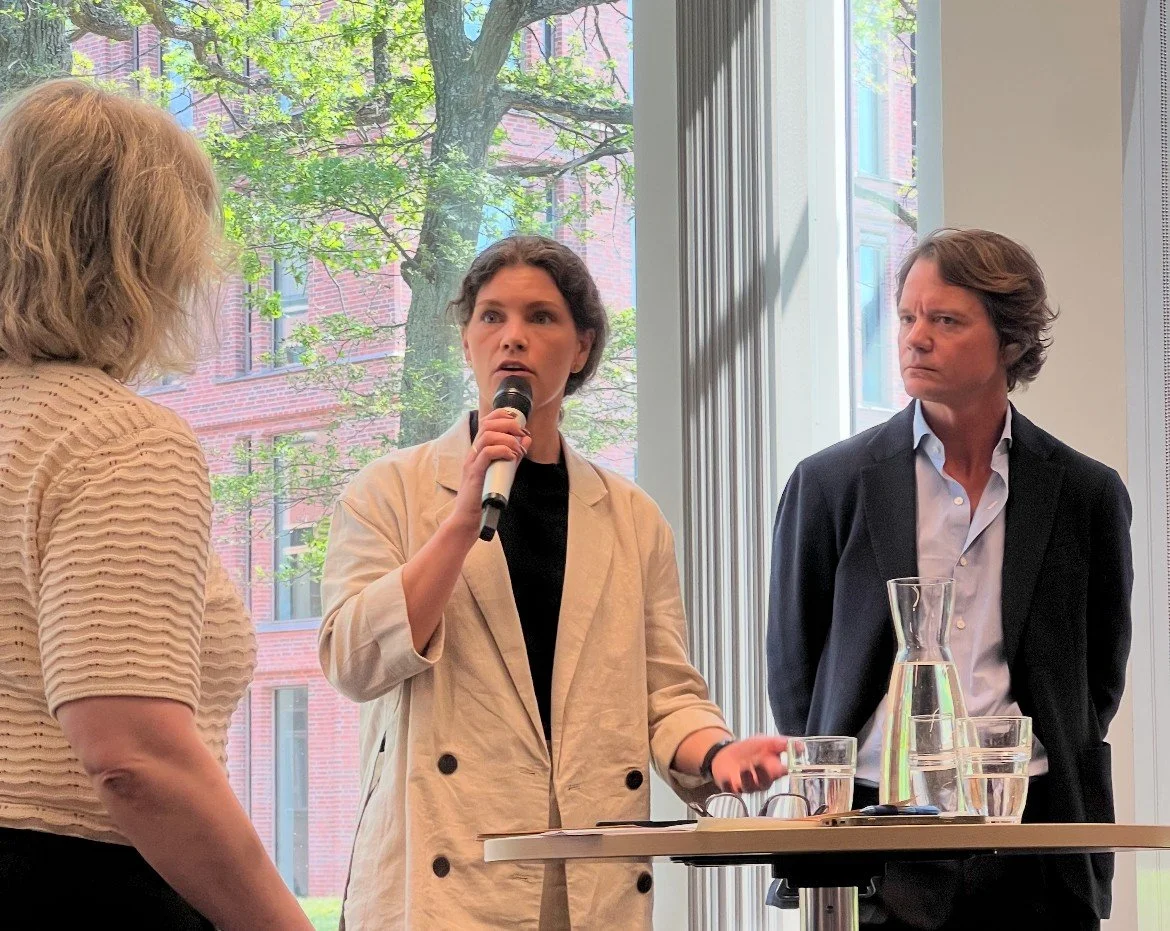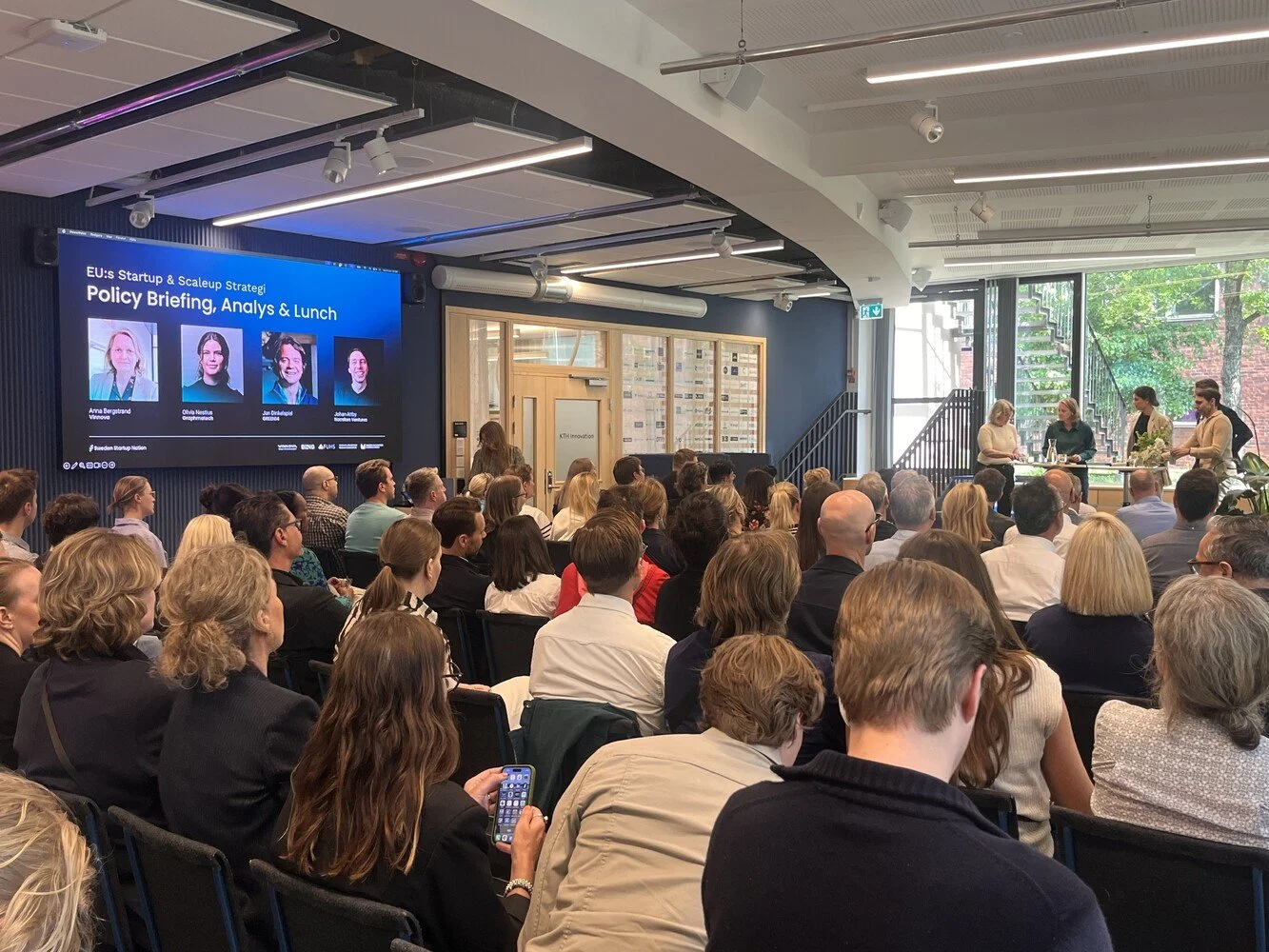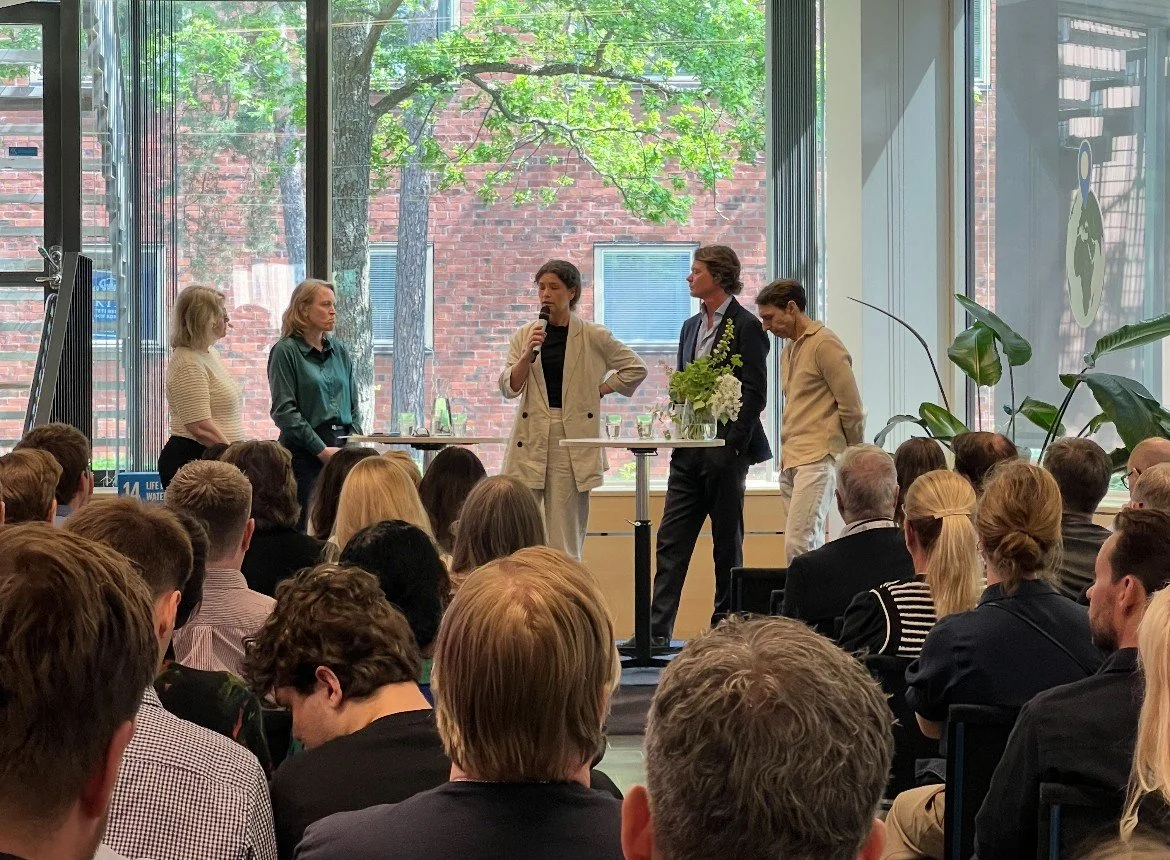Europe's new startup and scaleup strategy: A window of opportunity - but Sweden must act
Seminar June 5, 2025 | "The EU's new startup and scaleup strategy - what does it mean for Sweden?"
In a time of geopolitical turmoil, rapid technological development and increased global competition, the EU presented on May 28 an ambitious strategy to make Europe the best place in the world to start and scale companies. On June 5, representatives from startups, scaleups, the EU, Swedish authorities, ministries, investors and the innovation ecosystem gathered at KTH Innovation in Stockholm to discuss what the new strategy means - and how Sweden should act. Europe wants more - but why now?
Vasco Pereira Da Silva, Allied for Startups.
Vasco Pereira da Silva from Allied For Startups, on live link from Brussels, gave a background on why the EU is acting now:
"This is the first time the EU has presented a strategy at this level for startups and scaleups. Fragmentation is one of our biggest problems - there is no real single market for young companies today."
He also highlighted how the strategy was inspired by Sweden:
"The new investment strategy that underpins the EU's work has actually taken inspiration from the Swedish ISK model - something we see as a model."
Five pillars - but which ones are most important?
The strategy is based on five areas: better regulation, access to capital, the path from research to market, talent attraction, and infrastructure and networks. But what priorities does Sweden need to set?
Anna Bergstrand, Area Manager Emerging Technologies and Businesses, Vinnova, clearly emphasized:
"The single market is the most important thing. Fragmentation is really hampering companies. We need to create a real single market for startups, not just in theory."
She also highlighted the importance of building on Europe's existing innovation hubs:
"We have strong university ecosystems - let's connect them across borders."
Olivia Nestius, Graphmatech and Jan Dinkelspiel, GREEN14.
Capital - still a vulnerable area
Several voices pointed to the difficulty of raising the right kind of capital at the right stage, especially for deep tech.
Olivia Nestius, CEO of the scaleup company Graphmatech, described the challenge:
"This is when we are ready to take the next step - from R&D to industrial scale. But the funding models are not designed to meet our needs."
She gave a concrete example:
"Grants often come when depreciation is done - but we need the money when we invest in machinery, not years later."
She also took the opportunity to mention that Graphmatech is currently conducting a financing round of SEK 50 million - an excellent example of what concrete capital needs in this phase are about.
Jan Dinkelspiel, chairman of the board of another scaleup - GREEN14 - highlighted the geopolitical perspective and the slowness of Swedish decisions:
"The US and China work with 50-year strategies - we go to elections every four years. Seeking government funds to scale innovation takes years. While we wait for answers from governments, China is building entire cities."
He called for more courageous public capital:
"Swedish pension funds would rather invest in VC funds in California than in European deep tech funds. We need to change that."
The seminar gathered over 100 people from representatives of startups, scaleups, the EU, Swedish authorities, ministries, investors and the innovation ecosystem.
Public procurement - an untapped force
Johan Attby, partner at Norrsken VC, pointed out how difficult it is for startups to get public clients:
"My first company got Microsoft in long before any Swedish company. Public procurement in Sweden is extremely risk-averse."
He highlighted that public procurement represents over 30% of GDP, but that it is "almost impossible" for startups to become part of it:
"The best funding doesn't come from VCs - it comes from real customers."
Mindset shift needed - from management to innovation
Moderator Lisa Ericsson, Head of KTH Innovation and CEO of KTH Ventures AB, summarized:
"This is no longer a command economy - we need to build an innovation economy. And that means putting startups at the center."
She also pointed out:
"A new mindset is needed among public actors. It's time to dare to take risks - for real."
So what happens next?
The panel agreed: the strategy is good - but without implementation it is ineffective.
"Sweden has every opportunity to take a leadership role - but it requires us to stop talking about what should be done and start acting."
And with the EU's public consultation open until summer, the timing is now. All ecosystem actors - governments, investors, startups, universities - are invited to engage in policy work.
Conclusion
The EU has laid the foundations - now it's up to each member state to build on them. Sweden has the ideas, the talent and the structures. Let us also have the will to act.
Do you have an opinion on the strategy? Get involved. Share this article. Contact your government or university. Respond to the consultations.
This is where we shape Europe's future innovation power!
The seminar was organized by Sweden Startup Nation - an independent national actor that strengthens Sweden's innovation capacity by collecting, analyzing and making data available, as well as making neutral meeting places available for discussions about startups and scaleups - to highlight their importance, reduce knowledge gaps and create better conditions for growth. Behind Sweden Startup Nation is BLING , FUHS - The Association of University Holding Companies in Sweden, the Swedish Universities' Innovation Office and SISP - Swedish Incubators & Science Parks which together represent over 100 Swedish research and innovation environments across the country.




